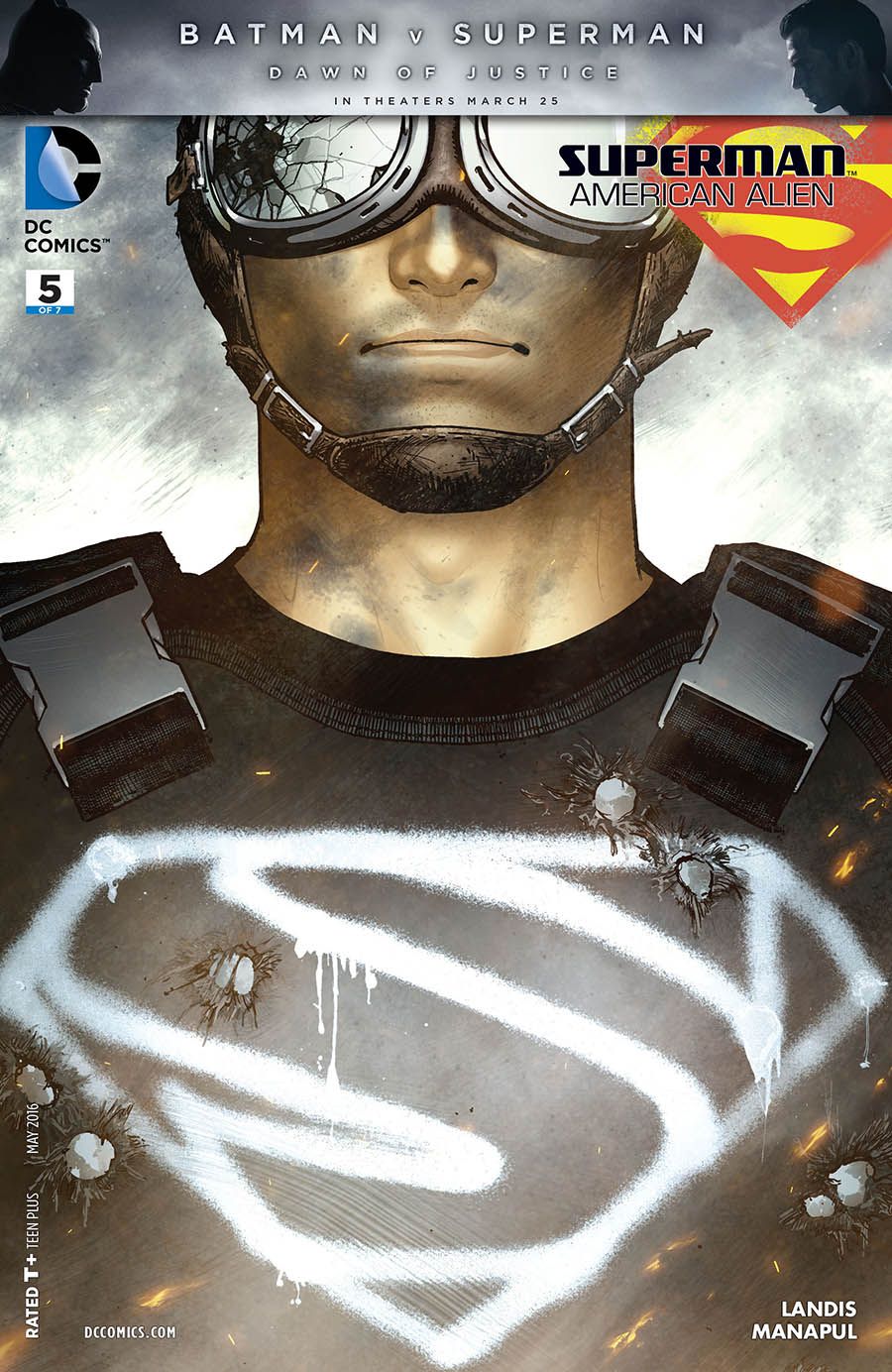I almost feel bad for this week's "Superman" #50, which wraps up the depowered Superman storyline that's run for almost a year; it's not even in the running for the best Superman comic of the week -- or the month -- and that's because of "Superman: American Alien" #5. In one fell swoop, Max Landis and Francis Manapul have turned out one of the most definitive Superman comics, which makes me desperately hope this duo will be the new "Superman" creative team this summer. It's just that good.
Part of what makes "Superman: American Alien" #5 work so well is Landis' understanding that the best Superman comics don't put the character in isolation. He's at his most successful when he's interacting with and reacting to other characters, and Landis picks three perfect figures in that regard: Lois Lane, Lex Luthor and the Parasite. Each of them ultimately serves a specific purpose in helping transform Clark from a costumed vigilante into a full-on superhero.
Lois Lane is whip-smart in "Superman: American Alien" #5, and that's Lois at her best. She's able to argue both sides of complex questions, like if the world needs a Superman; she sees all angles and understands the purpose of a hero more and more the longer Superman is in action. The two big conversations between Clark and Lois perfectly bookend this comic, first with Clark trying to convince a pragmatic Lois, and then with Lois as the voice of reason in the way she cuts through the excuses and understands better than even Clark himself why he needs to be Superman. Lois is most interesting when she is not only a professional rival for Clark, but one who does so without malice. She's always thinking, always analyzing, always putting together disparate pieces of information to see a larger picture. I love those depictions of Lois, and her understanding of the need for a Superman now more than ever is a prime example of that sort of Lois.
Landis also develops a good take on Lex and the Parasite; one is the master manipulator, the other the victim-turned-monster. Landis is careful to make Parasite both dangerous and pitiable, and that's a key part of his story here; you feel bad for the Parasite even as the damage to both the city and its people increases. This is someone who's being used -- on a hideous level -- by Lex Luthor in this latest origin for the character. The Parasite isn't just someone that needs to be fought by Superman; he's the sort of person that needs protection from heroes. Landis presents Parasite as a pawn that would continue to be abused by ruthless men like Lex Luthor, a man who sees everything in terms of power and control. It's a chilling and dangerous Lex, and having Superman rise up against him while still never losing his good, charming soul is no small feat. This is a Superman who is true to himself while still being strong for others.
"Superman: American Alien" has had a series of amazing and top-notch artists, and Manapul's work here is no exception. Who knew that Superman sitting on the corner of a building with a cheap and cobbled-together costume, eating a Chinese food to-go carton, could look so iconic? Manapul pulls several different elements of the character together, with a certain youthful innocence tempered by an immeasurable amount of power. He's able to look startled at key moments (like the fire engine being hurled into the air some distance away), even as the way he flies around a SWAT team looks imposing and dangerous. Speaking of dangerous, we only get some glimpses of the Parasite in his monstrous form, but it works perfectly; he's really darn creepy, and you almost get more of a sense of the character by what he's done rather than what he's doing at any given moment.
It's worth nothing that Manapul lays out a page beautifully but almost never needs to do anything out of the ordinary. Rather, he understands how large a panel should be in relation to others, emphasizing the key moments while letting the smaller panels have an impact. One charming exception to that rule is when the Parasite goes into the lake, and the panels shift and shrink to show us not only the way the water moves from the impact, but also to give us a real sense of the Parasite sinking below the waves towards what feels like an inevitable death. It stands out here, not only because it's the one time Manapul shifts the panels' borders, but also because it's so perfectly effective.
"Superman: American Alien" #5 is a perfect issue, something that Landis and Manapul should be exceptionally proud of. With a wonderful script, gorgeous art and understated colors, what more is there to ask for? I realize Landis and Manapul have many other projects ahead of them, but -- if there was a way for them to be reunited on another comic -- it would be a bestseller. Landis and Manapul have set the bar very high for what a Superman comic should be.

